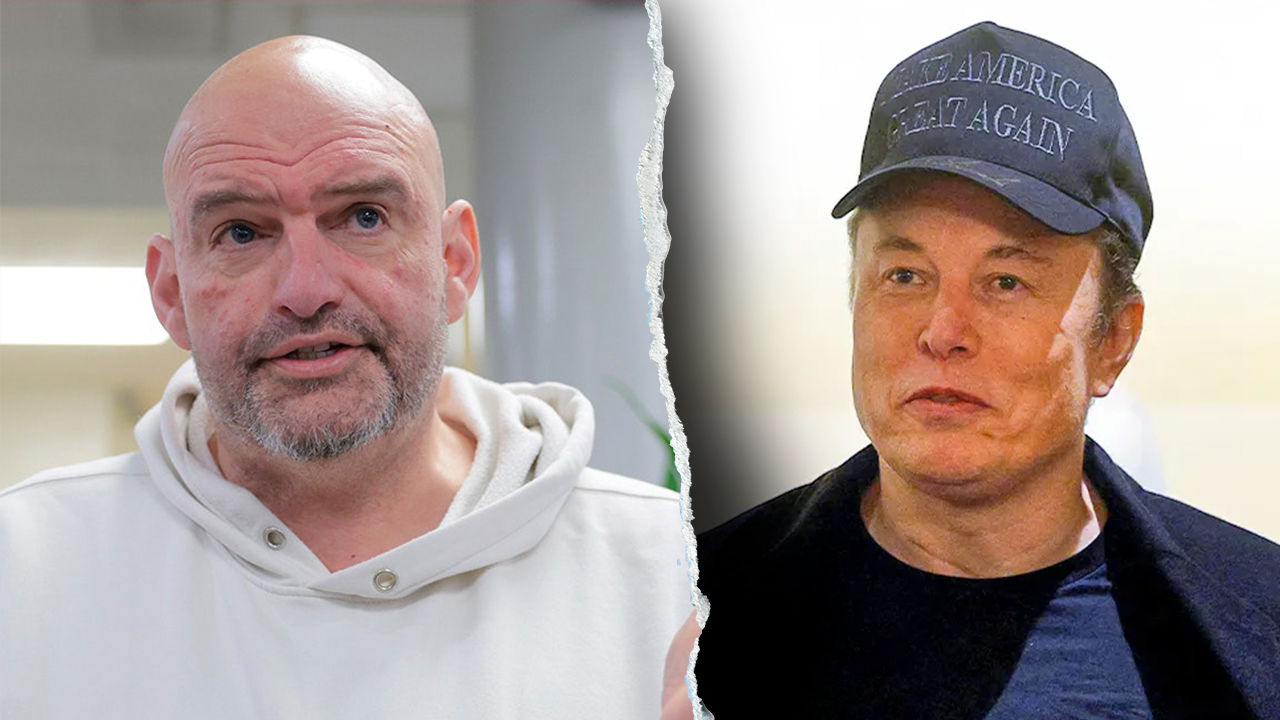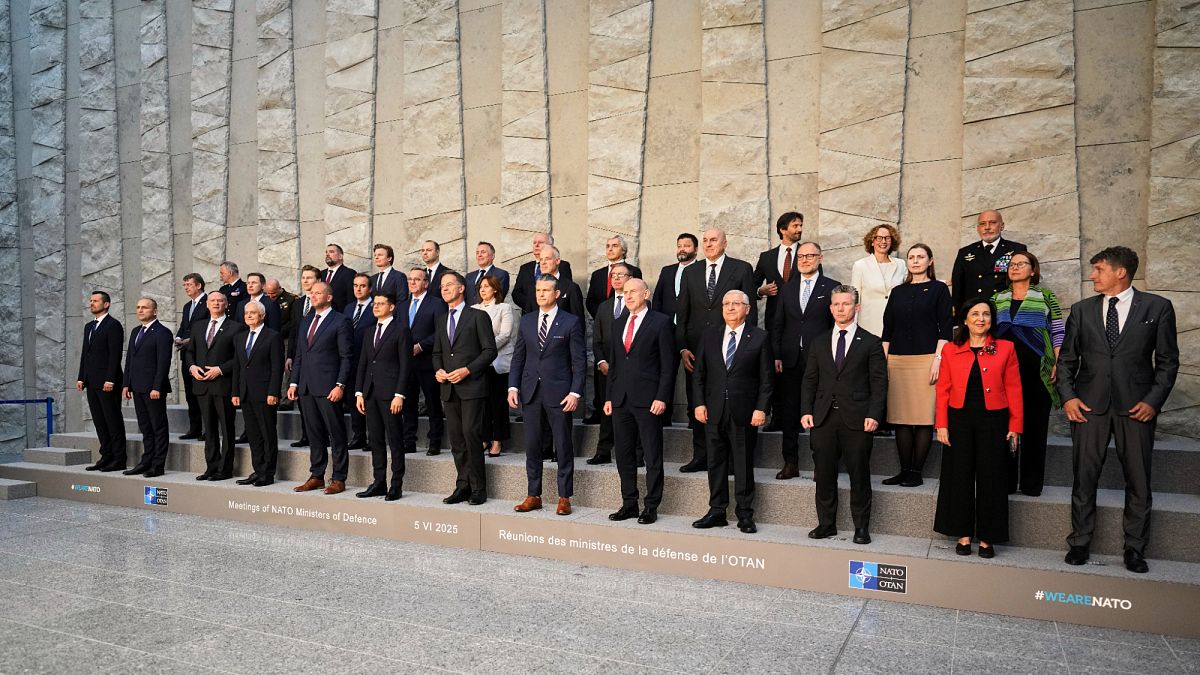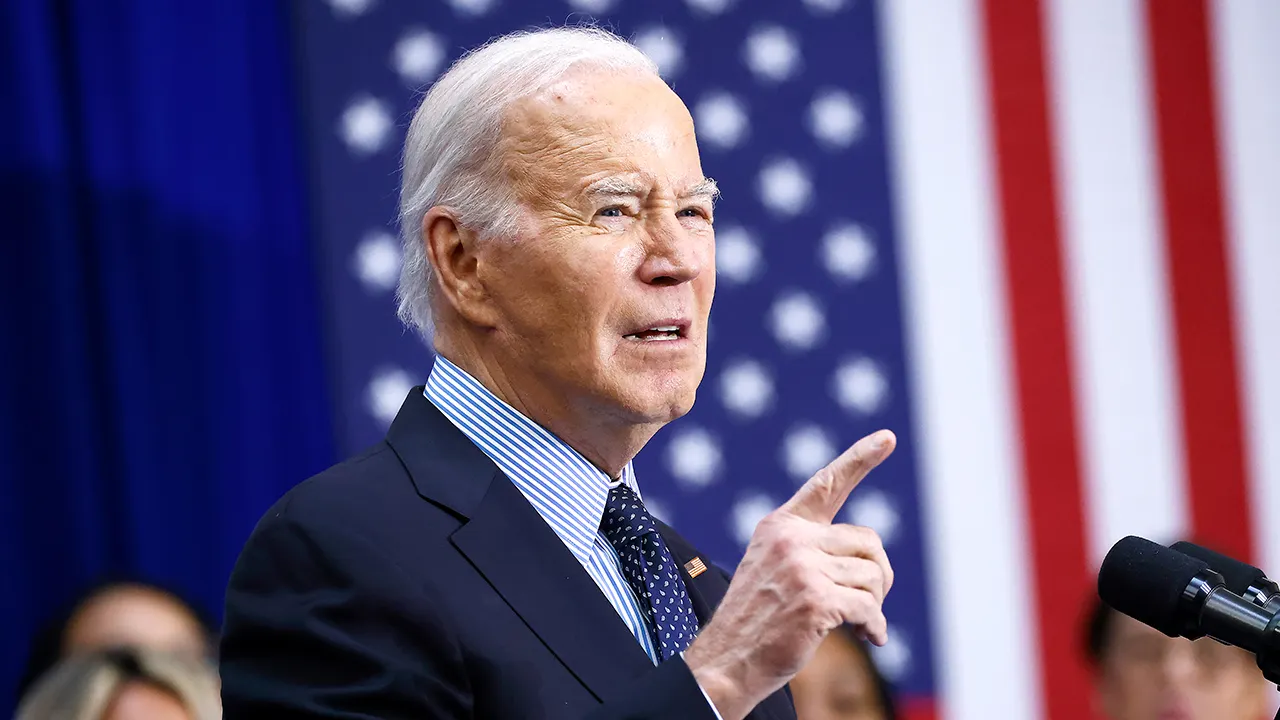Finance
Israel’s finance minister now governs the West Bank. Critics see steps toward permanent control

ASA’EL, West Bank (AP) — With attention focused on its contentious judicial overhaul, Prime Minister Benjamin Netanyahu’s government has quietly taken unprecedented steps toward cementing Israel’s control over the occupied West Bank — perhaps permanently.
Finance Minister Bezalel Smotrich, a leader of the settlement movement, assumed new powers over the occupied territory in his coalition agreement with Netanyahu. Smotrich moved swiftly to approve thousands of new settlement homes, legalize previously unauthorized wildcat outposts and make it more difficult for Palestinians to build homes and move about.
As the first government minister to oversee civilian life in the West Bank, his role amounts to a recognition that Israel’s 56-year military occupation is not temporary but permanent, observers say.
“If Smotrich keeps this position for four years we will be at a point of no return,” said Ilan Paz, former head of Israel’s Civil Administration, a military body overseeing civilian affairs in the West Bank.
Hoping to return to power while facing a corruption trial, Netanyahu offered sweeping concessions to pro-settler lawmakers like Smotrich to form his governing coalition last year. The coalition agreement created a new Israeli settler agency, led by Smotrich, within the Defense Ministry to manage Jewish and Palestinian construction in the 60% of the West Bank over which Israel has control.
“It’s a sort of revolution, transferring powers from the military, with its legal obligation to consider the well-being of occupied people, to those only committed to Israeli interests,” said human rights lawyer Michael Sfard.
Smotrich has said he seeks to double the settler population, build up roads and neighborhoods and erase any remaining differences between life for Israelis in the West Bank and within Israel proper. Along the way, he hopes to destroy any Palestinian hopes of independence.
As finance minister, Smotrich can funnel taxpayer funds to West Bank infrastructure projects. Israel’s 2024 budget earmarks an all-time high of $960 million — a quarter of all Transportation Ministry funds — for a highway network better connecting Israel to the West Bank. The settlers are just over 5% of Israel’s population.
Smotrich and his supporters see the West Bank as the biblical homeland of the Jewish people and envision a single state from the Jordan River to the Mediterranean Sea in which Palestinians can live quietly with second-class status or leave.
“We felt like the state never prioritized us because of where we lived. Smotrich is changing that,” said Smotrich’s spokesperson Eitan Fuld.
While Smotrich’s new settler agency now handles the territory’s land-use issues, COGAT, the military body that oversees the Civil Administration, retains specific responsibilities over more than 2 million Palestinians. Rights groups and others have compared the division along ethnic lines to “ apartheid.”
Some half-million settlers live in the West Bank, which Israel captured along with east Jerusalem and Gaza in the 1967 Mideast war. The international community overwhelmingly considers the settlements illegal.
Experts and officials say Smotrich’s policies already have compounded Palestinian misery, emboldened violent settlers and unleashed turmoil within Israel’s military establishment. Recent settlement expansion has also strained the Netanyahu government’s ties with the White House.
Smotrich declined interview requests.
“Smotrich took over the Civil Administration, the only tool that Israel has to calm things down,” said former West Bank military commander Gadi Shamni. “The West Bank will explode.”
Monthly settler attacks have surged by over 30% this year, compared to 2022, U.N. figures show. The government has approved 13,000 settlement housing units and legalized 20 outposts built without authorization, said anti-settlement watchdog Peace Now, the highest levels since the group started counting in 2012.
Under Smotrich, Israeli authorities have pressed on with the demolition of Palestinian construction built without permits. COGAT acknowledged in July that it rejects over 95% of Palestinian permit requests.
This year’s demolitions are up slightly from last year, which saw the most demolitions since at least 2006, according to Israeli rights group B’Tselem.
Meanwhile Israeli authorities have scaled back efforts to evacuate unauthorized Jewish outposts, settlers say.
“This is the best government we’ve ever had,” said 32-year-old Shulamit Ben Yashar from the outpost of Asa’el in the arid hills south of Hebron. The outpost — home to 90 families, including Smotrich’s brother Tuvia — received legal approval on Sept. 6.
Renovation fever ran high at the Asa’el playground as mothers gushed about their plans to swap ramshackle caravans and wheezing generators for concrete and Israel’s national electricity grid.
Their Palestinian neighbors — herders across dusty slopes known as Masafer Yatta — face expulsion by Israeli authorities and increased attacks by settlers. Residents in the rural area, which the Israeli military plans to seize, say Smotrich and his allies are squeezing the life from their communities.
“We can barely breathe,” said 38-year-old Sameer Hammdeh, whose two camels were killed last month after stumbling over trip wires he said were placed by settlers. Residents say settler provocations — damaging Palestinian cars and hurting livestock — reflect a sense of impunity instilled by the government.
Smotrich and his allies have also vowed to hasten the pace of settlement construction. In July, the government slashed six stages of approval required for settlement advancement down to two: Smotrich and a planning committee.
“This makes it possible to build much more,” said Zvi Yedidia Sukkot, lawmaker in Smotrich’s Religious Zionist party.
The party has proposed allocating $180 million to renovate settlement housing and build new hospitals and schools. Authorities are paving two new multimillion-dollar bypass roads to whisk Israeli settlers around Palestinian towns.
One of the roads goes around Hawara, a flashpoint town where settlers burned dozens of houses and cars in a rampage early this year following the deadly shooting of two settlers. At the time, Smotrich said the town should be “erased.”
“Our government has finally figured out that withdrawing from land is a prize for terror,” said Rabbi Menachem Ben Shachar, a teacher at a newly built yeshiva seminary at Homesh, one of four outposts that Israel evacuated in 2005.
Lawmakers repealed the legislation this year that had barred settlers from visiting the site. Over 50 students were rocking in prayer at the yeshiva on a recent visit.
Such decisions have unsettled Israel’s defense establishment. Settlers said that Israeli forces in May tried to stop them from hauling heavy construction equipment to build a new yeshiva. But when Smotrich pressed, the government abruptly ordered troops to allow settlers to build.
“The political echelon ordered the military echelon not to obey the law,” said Nitzan Alon, a retired general who once commanded the West Bank region.
The military and COGAT declined to comment on that incident. But a security official, speaking on condition of anonymity to discuss the matter, said Smotrich’s intervention has halted several planned demolitions in unauthorized outposts.
Last month, the tug-of-war between Smotrich stalwarts and security-minded military men burst into the open when Israeli authorities were filmed pumping cement into wells south of Hebron, permanently sealing Palestinian water sources in the heat of summer. Palestinians had drilled the wells without permits that Israel rarely provides.
The footage spread on social media, and COGAT was caught off-guard, said the security official. The agency promised any future demolitions of water cisterns “would be examined based on their merits.”
Smotrich’s men are “crossing all the lines,” said Paz, the former general. “They don’t care.”

Finance
Chinese lenders among top backers of “forest-risk” firms
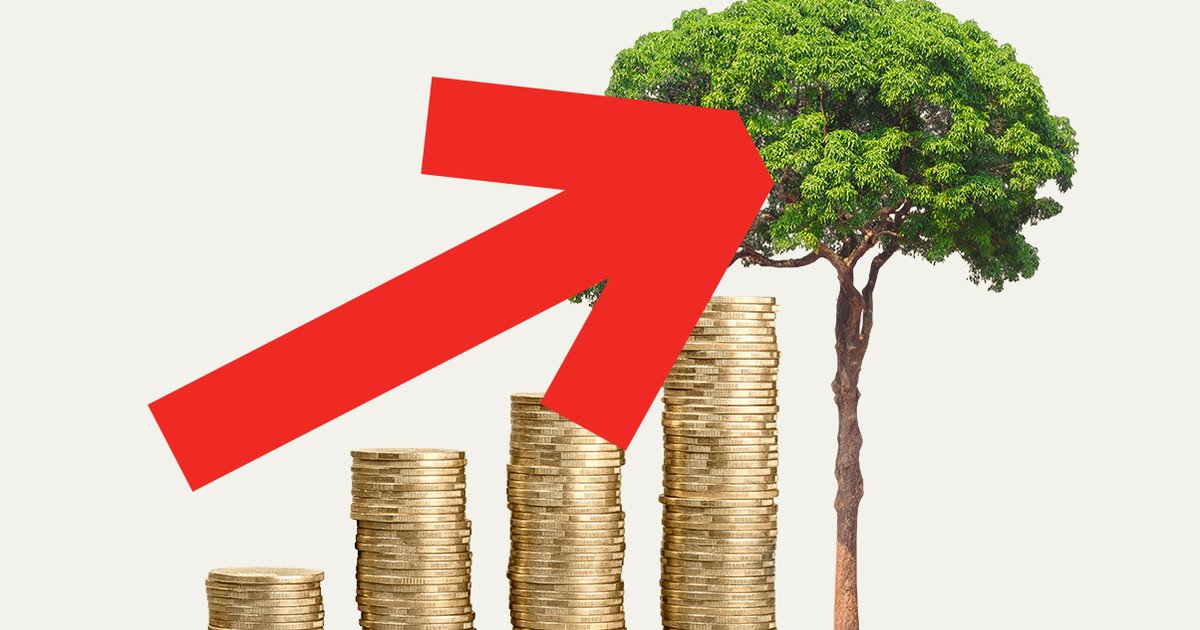
Recent data shows that Chinese banks have become the largest creditors to “forest-risk” companies, after major producing countries Brazil and Indonesia
Adobe Stock
Key findings
- Recent data shows that Chinese banks have become the largest creditors to “forest-risk”* companies, after major producing countries Brazil and Indonesia, with over $23 billion in financing provided from 2018 to 2024.
- Key Chinese banks, including CITIC, Industrial and Commercial Bank of China and Bank of China, are among the top creditors for “forest-risk” companies such as Royal Golden Eagle Group, which has faced repeated allegations that its supply chain has driven deforestation.
- The increasing flow of finance to “forest-risk” companies undermines China’s climate and environmental goals under the Glasgow Leaders’ Declaration and national Green Finance Guidelines.
- Meanwhile, Chinese banks rank poorly compared to their international counterparts in terms of deforestation-related policies, with four out of six major Chinese lenders scoring zero in the Forest 500 annual policy assessment.
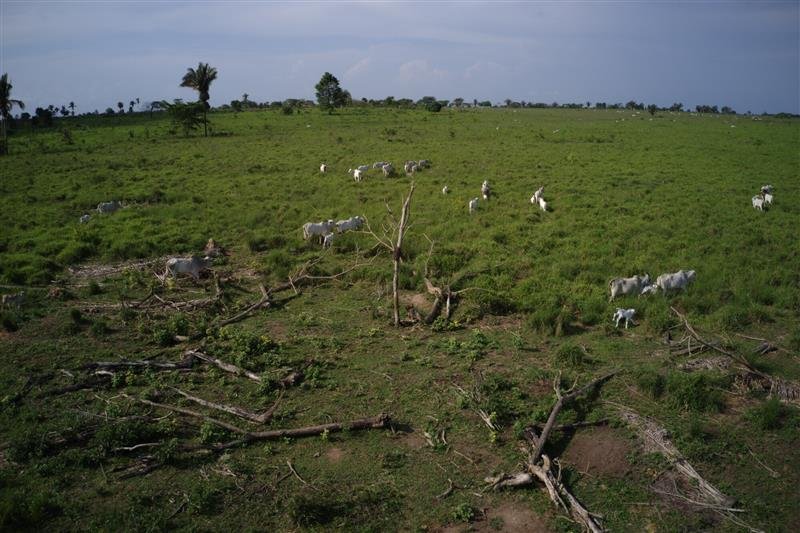
Cattle in Pará State of Brazil. 60% of tropical deforestation is linked to just three key products – beef, palm oil and soy. Fernanda Ligabue / Global Witness
Recommendations
- Chinese banks and regulators must take stronger action to cut ties with deforestation-linked companies.
- Chinese banks should publish and implement clear zero deforestation and human rights protection policies when financing “forest-risk” companies.
- Banks should implement China’s 2022 Green Finance Guidelines by establishing due diligence processes to identify, monitor and screen out clients linked to deforestation.
- Chinese banks should establish open communication channels to rapidly receive and address deforestation allegations from international community.
- The Chinese banking regulator should strengthen green finance policies with clear requirements that banks cease financial support to companies with deforestation-linked supply chains.
Ranking global contributors to “forest-risk” finance: China’s rise to the top
Chinese banks became the largest creditors of “forest-risk” companies globally between 2018-2024 – excluding financial institutions based in Brazil and Indonesia – according to a new analysis by Global Witness, based on data released in September 2024 by the Forests & Finance coalition.
This marks a shift from Global Witness’s previous reporting on Chinese bank finance in 2021, which used Forests & Finance data from 2013-2020. During this period, Chinese banks were the fifth largest creditors globally of major companies producing and trading commodities at high risk of driving deforestation.
The Forests & Finance database, compiled by Dutch research firm Profundo, tracks financial flows to over 300 “forest-risk” companies involved in agricultural supply chains such as beef, palm oil and soy production – industries that are major drivers of tropical deforestation.
Profundo’s methodology, including how it defines “forest-risk” companies, is summarised below.
The financial sectors of Brazil, Indonesia and Malaysia provide a disproportionate amount of “forest-risk” financing to commodity producers in their own countries and are excluded from this analysis, which focuses on international financial flows. When including these countries, China ranked third globally overall in 2023, the final year for which full data is available.
At COP26, countries like the US, France, the Netherlands and the UK pledged to end deforestation by 2030. However, private financial institutions based in those financial centres also remain some of the biggest supporters of “forest-risk” companies.
According to the data, between 2018-2024, Chinese banks provided a total of $23 billion in credit to “forest-risk” companies.
This figure for the seven-year period is higher than the figure provided in the seven-year period between 2014-2020 ($18 billion), indicating that the financial sector has failed to adjust lending practices to mitigate the damage some of these companies are wreaking upon global forests.
There are a handful of key Chinese banks among the top creditors providing “forest-risk” financing – CITIC, Industrial and Commercial Bank of China and Bank of China were the top three creditors between 2018-2024, according to the data.
The two biggest “forest-risk” recipients of this Chinese bank lending are Sinochem and Royal Golden Eagle Group (RGE), despite both RGE and its subsidiaries facing repeated deforestation allegations.
COFCO, a major Chinese agricultural trader, is the third-largest recipient. Despite the company’s multiple commitments to address deforestation, in 2024 COFCO was alleged to have sourced soybeans from illegally leased Indigenous lands in Brazil.
Just one year prior, another investigation challenged whether COFCO had done enough to ensure its soy and palm oil supply chains were indeed deforestation-free.
In response COFCO claimed that it has not violated its own commitments, insisting that it takes numerous measures to monitor and enforce its supply chain standards.
It claimed the farmers tied to deforestation were indirect suppliers and said it was “working to increase traceability of indirect purchases, which will lead us to strengthen our controls and risk monitoring for this part of the supply chain.”
One noteworthy data highlight is that, in 2024, Chinese bank credit provision to global manufacturing conglomerate RGE spiked, despite data for 2024 only including deals made between January-July.
RGE’s sprawling network of “shadow companies” has faced multiple allegations of deforestation over the years in relation to its palm oil and pulp and paper supply chains.
RGE denies allegations of wrongdoing. In response to a July 2024 publication published by the Rainforest Action Network (RAN), RGE claimed it was “local communities”, rather than one its subsidiary companies, who were responsible for clearing forests in its palm oil supply chain – despite allegedly providing no evidence to support this conclusion.
RGE has also denied links to deforesting companies in its pulp and paper supply chains, most recently in response to an October 2024 investigation from The Gecko Project and Bloomberg.

Orangutans in the protected Tanjung Puting National Park in Kalimantan on the island of Borneo, Indonesia. Paula Bronstein / Getty Images
Over the past two years, RGE has received a series of sustainability-linked loans (SLL) supported by a consortium of banks, including Chinese banks such as Shanghai Pudong Development Bank Co, Ltd and Bank of Communications (Hong Kong) Ltd.
These “sustainable” loans allow RGE to borrow under more favourable conditions, providing it hits pre-determined “linked” environmental and social targets.
For example, the $1 billion 2024 SLL (provided to two “sustainable” palm oil producers in RGE’s network of subsidiaries Asian Agri and Apical) is tied to indicators of the companies’ compliance with “anti-deforestation commitments”, as well as to independent suppliers’ traceability verification.
However, the credibility of these “sustainable” deals was called into question in the above published by the Rainforest Action Network.
Why this matters: Chinese banks’ lack of robust deforestation policies
The rising influence of Chinese banks in “forest-risk” sectors is of particular concern given that Chinese banks persistently have some of the weakest deforestation policies in place compared with banks from other countries.
The lack of formal policy raises questions about whether and how the world’s top creditors to “forest-risk” agribusinesses are carrying out due diligence to ensure their investments do not drive deforestation.
One way of comparing the strength of banks’ policies on deforestation is via the Forest 500, prepared by Global Canopy, which ranks financial institutions based on an evaluation of their publicly available commitments to tackle deforestation and related human rights abuses, assessing factors such as if all commodities are included, as well as the transparency of their reporting against targets.
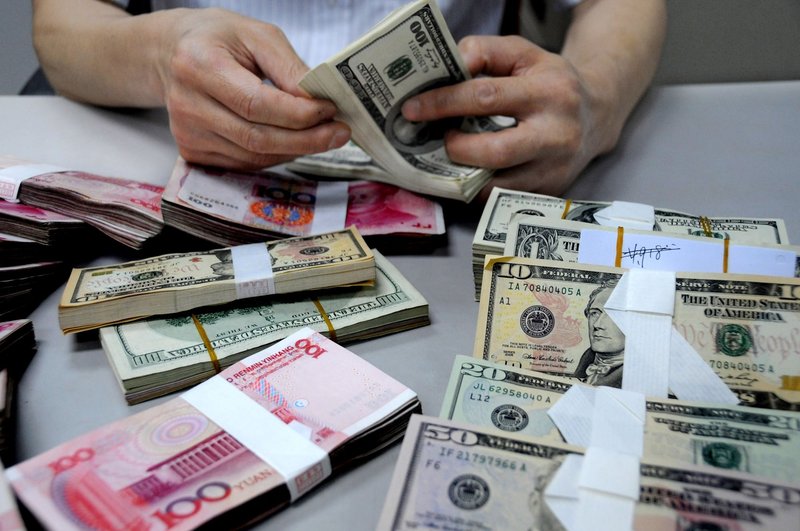
Key Chinese banks, including CITIC, Industrial and Commercial Bank of China and Bank of China, are among the top creditors for “forest-risk” companies. VCG via Getty Images / Getty Images
Four out of six major Chinese lenders (including CITIC, Bank of China, Industrial and Commercial Bank of China) assessed in Forest 500’s database have policy scores of zero. Just two Chinese banks score above zero: China Construction Bank scores three points and Agricultural Bank of China scores four points.
All the banks from China in this assessment also score zero points for their approach to human rights abuses associated with deforestation, apart from Agricultural Bank of China, which scores one point only.
By comparison, the overall highest scoring financial institution in Forest 500’s ranking is Schroders, which scores a total of 58.5 points, and has a policy to eliminate “forest-risk” commodity-driven deforestation from its portfolios by 2025.
According to Forest 500, a strong deforestation policy for a bank includes clear, time-bound commitments to eliminate deforestation and associated human rights abuses from its financing, applies to all high-risk commodities across all financial services, and includes robust implementation measures such as due diligence, monitoring and transparent reporting.
Global Witness approached Bank of China, Industrial and Commercial Bank of China and CITIC with an opportunity to comment on the report’s findings – including their financing activities and apparent lack of deforestation policies. None of the three banks responded to this request.
Recommendations: What should change
Chinese banks and their regulators must take their deforestation-risk portfolio seriously – the increasing financial support to the “forest-risk” companies shown by our analysis suggests a clear departure from China’s commitment and national policies.
The increasing flow of this funding, coupled with no national regulations to prevent it falling into the hands of deforesting companies, appears to contradict the commitments China has made on the international stage – such as those made under the Glasgow Leaders’ Declaration, signed by China and more than 140 nations at COP26, that commits to realigning financial flows with forest protection.
Crucially, supporting companies with a track-record of causing environmental and social harm is also at odds with China’s national policies, especially those designed to guide and leverage finance to support the green and low-carbon transition.
For example, in 2022, a major overarching policy called Green Finance Guidelines set out detailed expectations for banks and insurance companies to identify, monitor, prevent and control their environmental, social and governance (ESG) risks.
The guidelines made it clear that banks should “strictly restrict” granting credit to clients that face significant environmental and social violations and risks (article 20) and strengthen ESG risk management in their credit and investment granting for overseas Belt and Road projects (article 25).
In recent years, China has made efforts to decarbonise its economy and balance growth within planetary boundaries. In fact, the world is increasingly looking to China for leadership in climate and nature actions as the country explores new opportunities in the clean energy sectors.
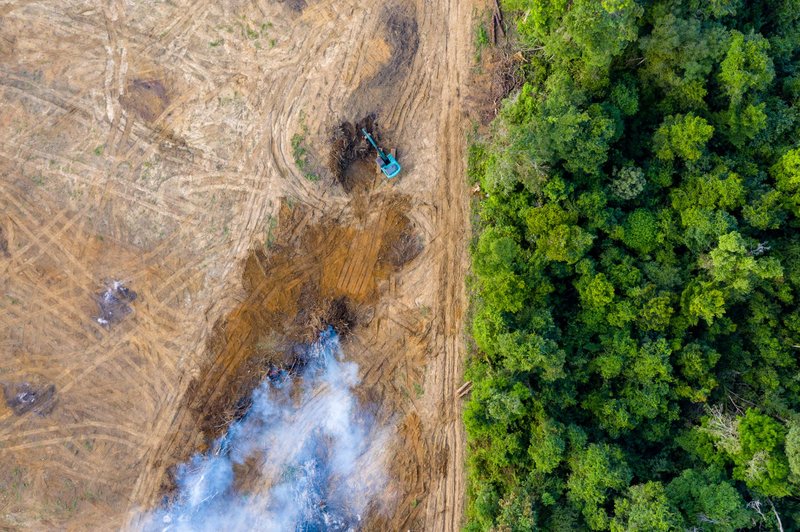
Rainforest being removed to make way for palm oil and rubber plantations. WhitcombeRD / Getty Images
Since the 10th anniversary of the Belt and Road Initiative, China has also introduced a series of policies aimed at greening or reducing risks associated with overseas investments.
Despite being one of the world’s largest markets for “forest-risk” commodities such as soy, beef and palm oil, China currently lacks a national policy prohibiting the import of commodities linked to deforestation.
However, China has made notable bilateral commitments with key forest country partners. For instance, in April 2023, China and Brazil pledged to collaborate on eliminating deforestation and illegal logging, while also enforcing laws to prevent illegal imports and exports.
Major Chinese food companies and traders are piloting “deforestation-free” shipments of commodities like soy, and efforts are underway to make Brazilian beef supply chains to China more traceable.
Global Witness’ analysis suggests that Chinese banks and their regulators can do much more to reverse the environmental and social harm caused by financing deforestation-linked companies, which undermines China’s international climate and nature goals.
Global Witness calls for:
- Chinese banks should publish and implement clear zero deforestation and human rights protection policies when financing “forest-risk” companies.
- Banks should implement China’s 2022 Green Finance Guidelines by establishing due diligence processes to identify, monitor and screen out clients linked to deforestation.
- Chinese banks should establish open communication channels to rapidly receive and address deforestation allegations from international community.
- The Chinese banking regulator should strengthen green finance policies with clear requirements that banks cease financial support to companies with deforestation-linked supply chains.
Methodology
The Forests & Finance coalition dataset, produced by Profundo and analysed by Global Witness, identifies financial transactions with more than 300 company groups that are involved in the upstream segment of the beef, palm oil, pulp and paper, rubber, soy and timber supply chains in Southeast Asia, Central and West Africa and South America, collectively referred to as “tropical forest-risk sectors” as they drive most deforestation.
Profundo notes that this selection of “forest-risk companies” is “intended to be a representative sample of companies most impacting tropical forests … Factors that led to their selection include the size of the company and land area of operation, access to information on their financing, and known negative impacts of their operations on tropical forests.”
Profundo’s data is compiled from Bloomberg, Refinitiv, Orbis and other sources, along with company reports.
The dataset captures six types of asset class and transaction, split into investments (2024; bondholding and shareholding), and credit (2010-2024; revolving credit facilities; loan issuance; bond issuance and share issuance).
Profundo applied “segment adjusters” to each company to estimate how much of a given portion of total finance could reasonably be expected to have financed the production or trade of a “forest-risk” commodity.
That means, for example, that finance provided by a Chinese financial institution to the US branch of a global conglomerate company is discounted, meaning all financing in this dataset are Profundo’s estimates of funding allocated towards commodity production in regions where deforestation occurs.
Read more information on Profundo’s methodology.
Finance
401(k) savers stayed on course through market volatility, Fidelity found
Retirement savers weathered a chaotic stretch of market gyrations in the first three months of the year, consistently adding to their savings, according to Fidelity Investments’ quarterly analysis.
While they experienced a drop in average 401(k), 403(b), and IRA balances, mostly due to market swings, savings rates remained consistent, with the average 401(k) savings rate increasing to a record 14.3%.
“We saw a lot of positive savings behaviors among employees,” Michael Shamrell, vice president of workplace thought leadership at Fidelity Investments, told Yahoo Finance.
“It was really encouraging to see that despite a lot of things going on, and economic ups and downs, people continued to save and didn’t pull back, or make a lot of changes to their asset allocation,” he said. “As a result, we saw the individual 401(k) savings rate increase to the highest level that we’ve seen.”
To break it down, the average employee contribution rate was 9.5%, and the employer contribution rate was 4.8%. This combined savings rate of 14.3%, up from 13.5% in 2020, is the closest it’s ever been to Fidelity’s suggested savings rate of 15%.
“For years, the individual savings rate was stuck at 8%,” Shamrell said.
Overall, average 401(k) retirement account balances dropped 3% through the first three months of this year to an average of $127,100 from $131,700 at the end of 2024. This was the second-highest average on record for the firm and an 11% increase from the start of 2024.
The data is based on 25,300 defined contribution plans at various companies across the country, covering 24.4 million participants.
Read more: How much can you contribute to your 401(k) in 2025?
In the first quarter, 17.4% of people with 401(k) accounts at Fidelity increased their savings rate, while 5% decreased. Less than 1% stopped saving altogether.
Surprisingly, only 6% changed their 401(k) asset allocation. Of those who did, about 3 in 10 moved into more conservative investments.
There are two big drivers.
First, automatic enrollment in employer-provided retirement accounts for new employees and auto-escalation each year keep the trains running through all kinds of uncertainty.
More than 1 in 4 plans now offer employer-set automatic escalation, and 35% of plans default to automatically enrolled employees at a 5% contribution rate or higher, according to Fidelity data, with an annual 1% increase until reaching roughly 10% of pay.
“The increasing use of auto escalation is a big factor in why we are seeing a gradual increase in the individual savings rate,” Shamrell said.
Finance
New transition finance playbook offer tips for financial institutions | Investment Executive

It also considers current market realities such as a shortage of high-emitting companies with robust transition plans, the lack of high-quality and consistent metrics available to assess such plans, and no clear definition of what transition finance activity entails.
“There is no universal approach to transition finance,” said Yingzhi Tang, one of the lead authors of the playbook and a senior research associate with the ISF.
“That is where our playbook comes into play, to lay out a range of approaches, allowing financial institutions to select the path that best suits their mandate and context.”
The playbook offers 14 tips and provides some practical examples from the Caisse de dépôt et placement du Québec, Ontario Municipal Employees Retirement System (OMERS) and the Co-operators Group. The three institutions helped develop the recommendations.
The list of tips starts with a recommendation to get “the top level” of a financial institution involved, Tang said, referring to senior executives. The playbook says securing support at the senior level can be done by presenting a business case about how transition finance can allow an institution to create value and manage risks.
Another tip is to leverage third-party taxonomies and frameworks to come up with an in-house definition for transition finance and clearly communicate which frameworks that definition is based on. For example, it notes that OMERS developed its in-house climate taxonomy by drawing on external frameworks such as the International Capital Markets Association’s Green Bond Principles and Climate Bonds Initiative Taxonomy.
Acknowledging that high-emitting companies are still in the early stages of decarbonizing, the playbook further recommends using a range of metrics to track their progress. This includes emissions intensity metrics, which measure the emissions produced for each unit of activity or output, and temperature scores, which estimate the global temperature rise associated with a company’s emissions or those of a portfolio.
Other recommendations include segmenting portfolios based on “transition maturity” to gauge which investments are further along in supporting a transition to a low-carbon economy and which require more progress, embedding decarbonization targets in underwriting strategies and collaborating with policymakers to drive further action.
“It is very much going step by step through the investment cycle,” Tang said.
The new playbook comes on the heels of the launch of Business Future Pathways, an initiative that seeks to encourage Canadian financial institutions and companies to develop credible climate transition plans. That initiative is also supported by the ISF.
Tang said the playbook and Business Future Pathways are intended to work hand in hand to propel Canada toward its target of achieving net zero by 2050. As it stands, it’s estimated that the country is short $115 billion a year in transition-aligned investments to achieve that target.
“Those activities make up the whole puzzle of deploying capital credibly to those assets with robust transition plans,” she said.
“It’s extremely important for Canadian financial institutions to manage climate-related financial risks and capture long-term value in the transition to net zero.”
IE was a media sponsor of the RIA Conference.
-

 News1 week ago
News1 week agoRead the Trump Administration Letter About Harvard Contracts
-

 News1 week ago
News1 week agoVideo: Faizan Zaki Wins Spelling Bee
-

 Politics6 days ago
Politics6 days agoMichelle Obama facing backlash over claim about women's reproductive health
-

 News1 week ago
News1 week agoVideo: Harvard Commencement Speaker Congratulates and Thanks Graduates
-
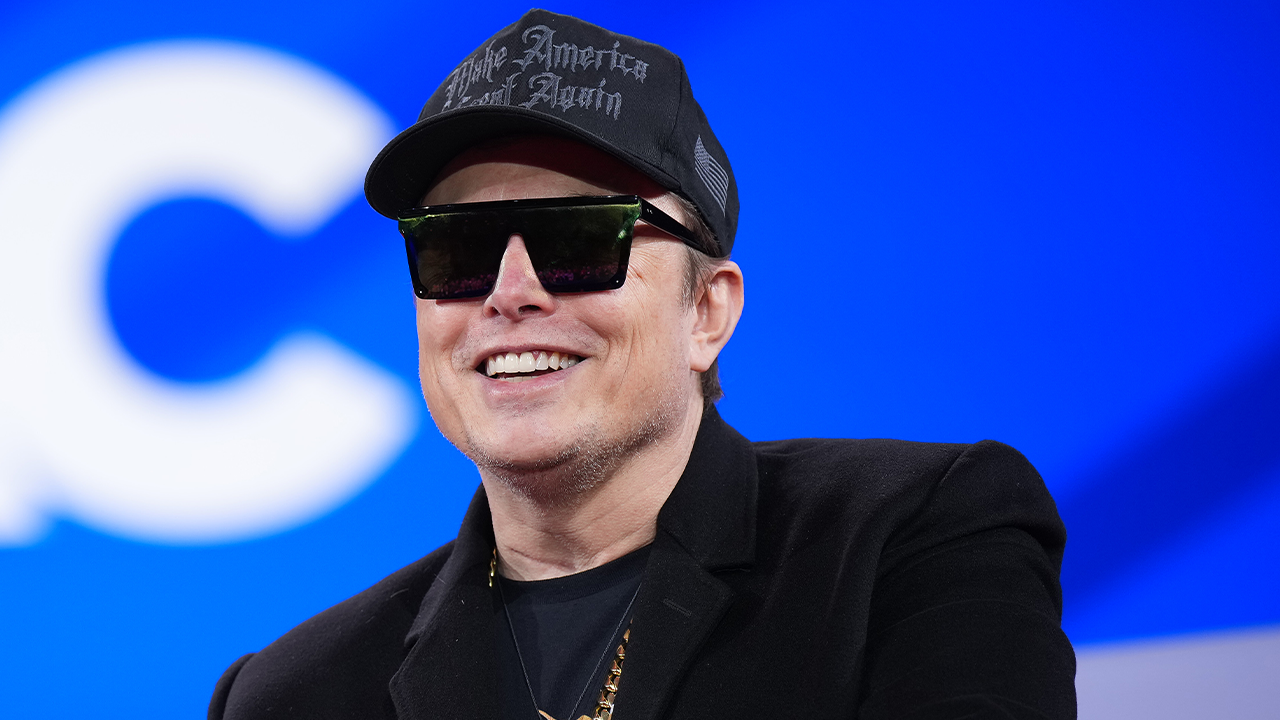
 Politics1 week ago
Politics1 week agoMusk officially steps down from DOGE after wrapping work streamlining government
-

 News1 week ago
News1 week agoPresident Trump pardons rapper NBA YoungBoy in flurry of clemency actions
-

 Technology1 week ago
Technology1 week agoAI could consume more power than Bitcoin by the end of 2025
-

 Movie Reviews1 week ago
Movie Reviews1 week agoCLOWN IN A CORNFIELD Review















